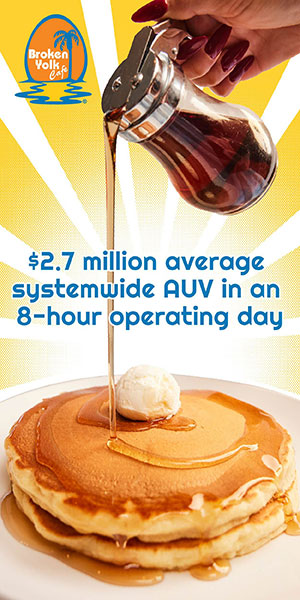Social Impact Investing Is Evolving in the U.S. Market – But Not Enough (Part 2)

As noted in my previous articles (Social Impact Investing Shows Up in International Social Franchise Programs and Social Impact Investing Is Evolving in the U.S. Market -- But Not Enough), there are multiple examples of how social impact investment has facilitated the use of the social franchise model, permitting social/micro-franchisors and franchisees to scale their businesses, employing local residents, serving more customers, and improving the economic health of local communities.
Here is the third installment exploring this topic, with a focus on Atlanta's Hollowell Parkway Corridor. My hope is that the examples in these 3 articles will act as a catalyst for further engagement in building a shared network of resources to foster and scale programs that result in trained, qualified local operators in low-income and under-developed markets in the U.S.
The Hollowell Parkway Corridor Study
"Using franchises to revitalize an urban corridor, improve neighborhood access to retail and services, and promote sustainable local economic development."
The Georgia Institute of Technology (Georgia Tech) evaluated various franchises and other businesses for the Hollowell Parkway Corridor in Atlanta. Primary driving factors for the economically underdeveloped area were demographics, service/need gaps, site selection and design, traffic, and transportation. Identification of local restaurant, retail, and service gaps was a critical factor in determining suitable franchise brands and other businesses to support a local economic development strategy. Researchers ultimately determined that the Corridor was a "food desert," made clear by a simple Google Maps search.
To gain the data necessary to revitalize the Corridor, the study employed a market survey strategy that included a "Character Preference Survey," as well as informal discussions of potential initiatives. The survey indicated the community desired a quality grocery store, restaurants, a farmer's market, storefront development, and community gathering spaces, as well as mixed-income housing, a public safety office, and post office.
Nine case studies of different businesses were done, including the following:
Save-A-Lot
Save-A-Lot, a discount grocery chain with more than 1,300 stores, uses a licensing model in which the licensee agrees to purchase a certain percentage of the licensor's products under the licensor's label. Save-A-Lot does not collect any royalties nor does it charge up-front fees. Rather, it emphasizes its private label goods by procuring, distributing, and marketing particular collections of high-quality household goods and food and making them available to licensees at very low prices. The licensee may then sell products at suitable prices for that market and location. Local customers pay up to 40 percent less than they would at supermarkets outside their neighborhoods, thereby effectively increasing buying power within their community and reducing the leakage of spending dollars to other communities.
To assist in raising capital, Save-A-Lot uses community connections familiar to minority owners in low-income communities to facilitate grants, government incentives, SBA loans, and other locally available assistance. While not providing any direct financing, Save-A-Lot has provided a monetary incentive to support a licensee's positive cash flow position during the early years of operation. Save-A-Lot offers IT support at a reduced cost in the first year, and a training program that features an initial 12-day course. It also provides advertising services, new store support, accounting services, and risk planning, as well as access to retail district managers to advise licensees on store operations, business practices, and public relations. New licensees are required to use Save- A-Lot's real estate services and work with its store design team.
Freshii
In evaluating this franchise, the researchers focused heavily on pedestrian traffic, bike lanes, and transit services as a means to drive potential customers. A major issue for the Corridor was a lack of retail opportunity and fresh food. Freshii offered the opportunity to make available quality, affordable, and healthy fast food while facilitating the potential for local employment at or above the national minimum wage, with benefits, bonuses, and the flexibility to either work full-time or part-time. Freshii's training program provided an array of skills through Freshii University, including food safety and preparation, customer service, operation standards and methodology, and training to develop skills for a career path in foodservice, catering, and management.
Habitat for Humanity's ReStore
ReStore is a subsidiary of Habitat for Humanity driven by the principle: "to help homeowners build their homes and create a world where everyone has a decent place to live." The store primarily sells new and refurbished furniture, home accessories, appliances, and building materials to the public at a significantly lower price than retail. ReStore deviates from conventional retail by focusing on areas that have diverse ranges of socioeconomic classes and does not rely on higher profit margins. It does this by attracting a large pool of donors and selling higher-quality products at a lower cost. This attracts businesses seeking such a mix of consumers, allowing for more experimentation and eliminating limitations caused by a narrow range of consumers.
Club Entrepreneur
A potential franchisee in a low-income area needs access to financial assistance in the form of a loan, whether from a loan program or directly from a bank. At the time of Georgia Tech's evaluation, none existed in the Hollowell Corridor. As part of its strategy to slow economic leakage to other communities, the researchers looked for a business that could serve as a catalyst for business development and investment and found Club Entrepreneur (aka Club E).
Club E is a global and online network that connects entrepreneurs to the financial resources they need to start and grow their businesses -- while also providing opportunities for education, collaboration, and implementation among community residents. Club E also has a myriad of youth entrepreneur programs such as the Compass Success Academy and the Copy Center program, which offer underprivileged youths experience in the business model and entrepreneurship, along with developmental resources and access to capital through its EpiCenter Endowment Fund. Club E also provides training and experience to young residents by assisting in placing them into professional positions in various community businesses.
Interested in learning more? Read the complete report with case studies from Georgia Tech.
Joyce Mazero, a shareholder with Polsinelli PC, a law firm with more than 825 attorneys in 21 offices, is co-chair of its Global Franchise and Supply Network Practice. Contact her at 214-661-5521 or [email protected].
Share this Feature
Recommended Reading:
| ADVERTISE | SPONSORED CONTENT |
FRANCHISE TOPICS
- Multi-Unit Franchising
- Get Started in Franchising
- Franchise Growth
- Franchise Operations
- Open New Units
- Franchise Leadership
- Franchise Marketing
- Technology
- Franchise Law
- Franchise Awards
- Franchise Rankings
- Franchise Trends
- Franchise Development
- Featured Franchise Stories
| ADVERTISE | SPONSORED CONTENT |






 The franchise opportunities listed above are not related to or endorsed by Franchising.com or Franchise Update Media Group. We are not engaged in, supporting, or endorsing any specific franchise, business opportunity, company or individual. No statement in this site is to be construed as a recommendation. We encourage prospective franchise buyers to perform extensive due diligence when considering a franchise opportunity.
The franchise opportunities listed above are not related to or endorsed by Franchising.com or Franchise Update Media Group. We are not engaged in, supporting, or endorsing any specific franchise, business opportunity, company or individual. No statement in this site is to be construed as a recommendation. We encourage prospective franchise buyers to perform extensive due diligence when considering a franchise opportunity.